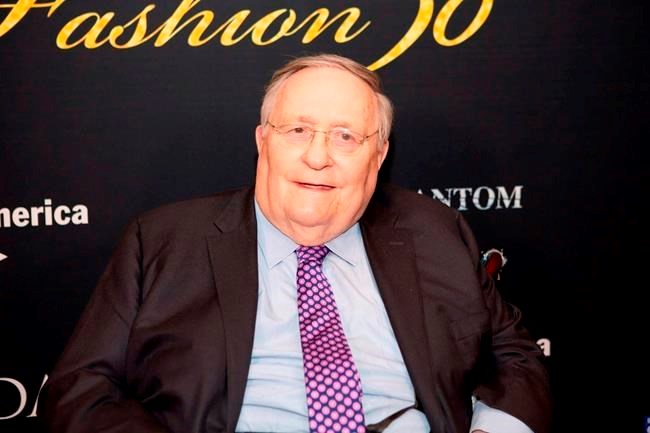NEW YORK — Philip J. Smith, who rose from box office treasurer at the Imperial Theatre on Broadway to chairman and co-CEO of the theatrical giant Shubert Organization, has died from complications from COVID-19, according to his daughters. He was 89.
In a career that spanned 63 years, Smith worked in every department of the Shubert Organization and was named general manager of all Shubert Theatres in 1964. The Shubert Organization owns and operates 17 Broadway theatres and six off-Broadway venues.
Smith “influenced every aspect of the professional
Smith would assume the role of president, and in 2008, he was named chairman and co-CEO alongside Robert E. Wankel. Smith retired in June 2020 and also stepped down as chairman of The Shubert Foundation, the company’s
Hugh Jackman took to Twitter to say “Broadway lost a titan of the
In 2011, Smith was
Smith was promoted to Shubert
“It’s never boring here,” he told Playbill in 2005. “I come in here in the morning, and I have no idea what’s going to happen in the course of the day. It can just change, turn around, spin off in any number of directions. And that’s the way my entire life in the theatre has been."
When he was inducted in the Theatre Hall of Fame in 2015, Tony Award-winner Bernadette Peters was chosen to
Born and raised in Brooklyn, he was the eldest son of Irish immigrants. Smith was an usher at a Brooklyn movie
He became assistant manager of the Palace Theatre on Broadway, where he met Judy Garland. One Sunday night, she called him, upset that she didn’t have any whiskey to serve backstage visitors.
All liquor stores were closed, but a quick-thinking Smith went to a tavern across the street and convinced the bar tender to loan him several bottles.
At 26, he landed a job in the box office of the Imperial Theatre. He recalled in his Tony speech that it was 1957 and the show there was “The Most Happy Fella” by Frank Loesser.
He would soon impress Shubert lawyer Bernie Jacobs. “They both had a sense of honesty and fairness in a business that did not lack for shady characters,” according to “Razzle Dazzle,” by Michael Riedel.
He is survived by his daughters, Linda and Jennifer.
___
Mark Kennedy is at http://twitter.com/KennedyTwits
Mark Kennedy, The Associated Press



